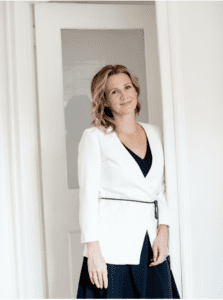The Momentum of Mediation. Member Spotlight: Lauren Sowers
Who is Lauren Sowers

Lauren’s concept of conflict was shaped as her role as a private investigator for over a decade. While she enjoyed the challenge and variety of investigative work, she felt that her natural curiosity and her interviewing skills could be used to promote conflict resolution instead of escalation and that a career path of moving people toward resolving their issues is more “in alignment with who I am, and with the world, I want to see for my children.”
Beginning with training centered around mediation for civil court, Lauren continued her education in the area of family/ divorce mediation and has recently become a certified co-parenting specialist. While she hasn’t mediated any global-scale problems like many members of MBBI, she believes that conflict dynamics are similar, whether on a familial or global scale and that mediators can learn from one another regardless of their areas of specialty: “Many global issues regarding resources and the integrity of people and governments are mirrored at the local level, and within families, so I can implement the things I learn through MBBI in my immediate environment here in North Carolina.”
The Momentum of Mediation
As a mediator, Lauren fully anticipates that each party will enter a conflict entrenched in a particular point of view, but says that the role of the trained natural is to help them see beyond their own positions: “Many people enter mediation with a simple, classic idea that there’s a pie on the table and they’re entitled to their piece of it. But a great mediator doesn’t just grab a knife and start handing out the pieces of pie- they will ask the right questions to determine the underlying interests and goals in play, help the participants hear and consider alternative perspectives, guide the participants to be resourceful and build out a bigger picture of what a ‘solution’ might mean to them and the others affected by the situation.” Her goal is to help parties interpret the conflict differently to reach shared new ground and knowledge.
Although mediation is not often seen as the first option to resolve conflict, Lauren believes there is a lot of momentum in favor of mediation. Many nonprofits and private sector businesses consider mediation as a first option for practical reasons. For most families, mediation is the more affordable and private way to resolve disputes.
Lauren views mediation as more broad and in-depth than just a process of resolving disputes between people. She takes a longer, evolutionary view- for her, “the ability to communicate across difference is essential to the survival of the human race. Change and conflict are inevitable parts of being human. But as mediators, we can reduce stress, reduce suffering, and empower people to partner with change.”
Article by Yousra Hasona, MBBI Writer
